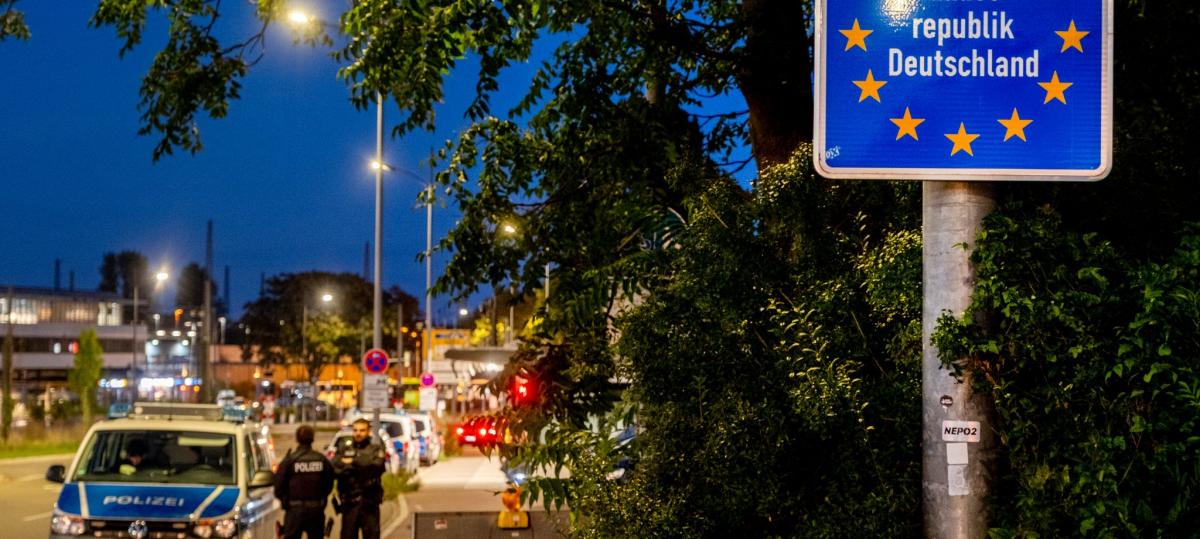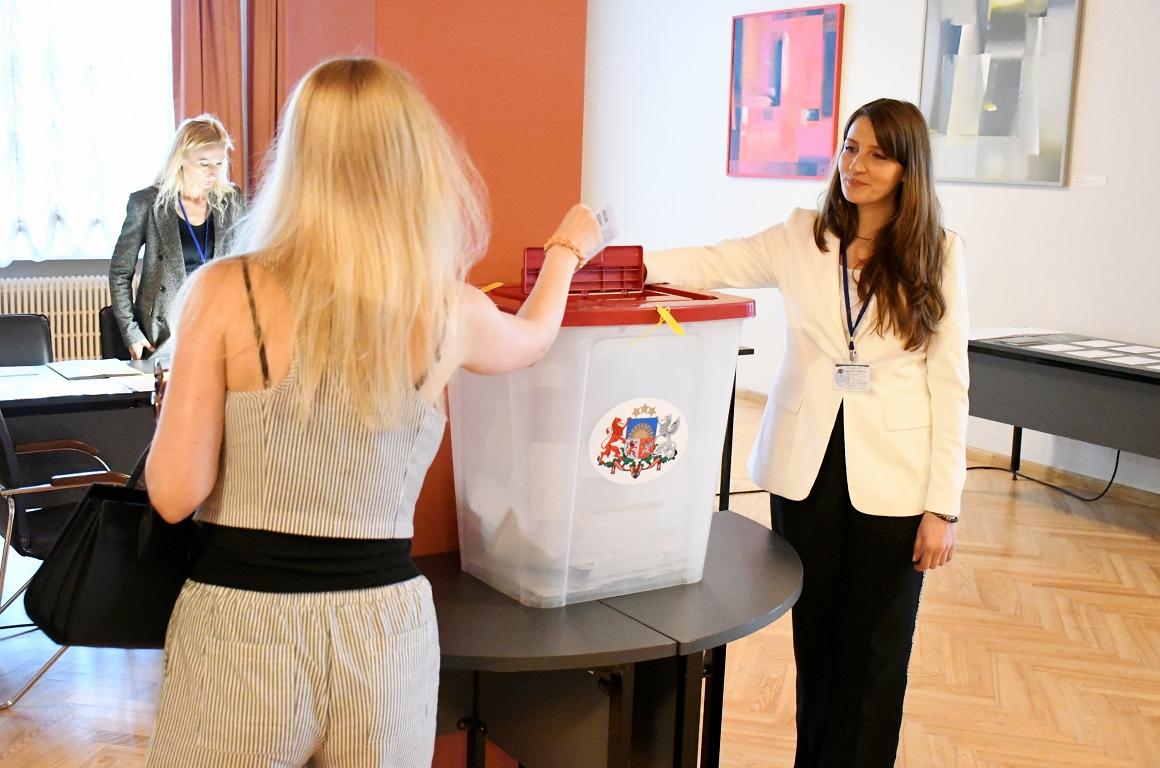‘We also stuck in protest against the image that there is always hassle on the track’
:format(webp)/s3/static.nrc.nl/wp-content/uploads/2025/06/05163439/data133217982-f902a2.jpg)
At seven o’clock in the morning, the station hall of Utrecht Centraal is nasty. Where many thousands of travelers usually pass, only a few wander around on Friday morning. The homeless people who normally merge with travelers are visibly stroll through the hall.
On the information boards where the timetable can be read, it says in bright red letters that the trains do not run today due to a strike from the Dutch Railways. The announcer keeps it more positive. The computer voice tells where trains still run – even though there are much less than usual on that route. « There are fewer trains run between Amsterdam Central and Schiphol, » it sounds tiny through the hall.
At Utrecht, only on the plate of Perron 19 is a departure time shown; The international trains from Utrecht do run. Reinout Wissenburg and Bas de Vreeze from Rotterdam are happy with that. « We go a weekend away to Munich with my parents, » says Wissenburg just outside the station hall. « Yesterday we already drove to my parents and today the neighbor was so kindly to drop us off at the station. »
Read also
Also read: Why don’t the Dutch Railways use buses? And can’t NS’ers other than strike? Twelve questions about the strike that paralyzes the country this Friday
The staff of the Dutch Railways stop because the employees are dissatisfied with the proposal that the railway company has made for a new collective employment contract (CAO). The action that was initially only intended for the Central Netherlands region, resulted in a national strike. According to the NS spokesperson, this is because this strike « affects the heart of our operation. » That is why all trains were canceled on Friday.
Every day the Dutch Railways has around 1.1 million train rides (who from A to B train and back to A counts as two journeys). The number of travel is slightly lower on Friday, roughly 1 million. Those travelers worked at home on Friday, or have to look for a different way to reach their destination. Two major providers of shared cars, Greenwheels and MyWheels, already indicated a major increase in the number of bookings on Thursday. Also check, which rents out shared cars in Amsterdam, saw an increase of no less than 500 percent.
The bus is also an alternative, but that takes considerably longer for most people. Karmen Hakvoort and Daphne van den Haak both travel from Breukelen to Utrecht. Where they are normally at the station within 10 minutes, the bus takes more than 40 minutes.
Cars also drive to and from at the carpool spot next to the station. Allison Creutzmann has decided to carpool this strike, together with her colleagues. Last year during the train strikes she was less lucky. « Then I had to wait a long time before I could finally get on a bus to Culemborg where I work. Every bus that drove past was packed. »
Not enough buses
To solve that problem, extra buses could be used. But that is not feasible, because there are not enough available buses, according to NS. Fifty travelers fit in a bus, around a thousand in an intercity. Incidentally, the buses are not packed on the early Friday morning at Utrecht Central.
Those who have taken the bus to Utrecht Centraal is Irosha Driessen. She usually takes the train from Culemborg. « I did the first part by car, but I parked it outside Utrecht. From there I took the bus. Parking is really a disaster here, so I am happy that the regional buses are still driving. »
NS’er Michel Eggermont is one of the strikers. He is central with a Jack from FNV Spoor in the Hall of Utrecht. Eggermont has been working at NS for 28 years, first he was a locomotiveist, then service employee. He helps travelers at the desk and in the hall, and disabled travelers also on the platforms. During his work he is more and more confronted with ‘the necessary verbal aggression’.

He therefore does not just stop for a higher wage. Eggermont: « The wage offer of NS is insufficient, it does not even cover inflation. But I think it is more important that the heavy work scheme should be improved. For colleagues who are running irregular services, but also for people in my position related to aggressive people at the station. »
They must be able to stop working earlier, says Eggermont. « Now some colleagues are in danger of falling outside that scheme. That really has to be a lot better. » At the moment a 67 service technician still has to run night shifts, says the NS’er. « You no longer want that at that age? That function is now outside the regulation for heavy professions. »
In the hall, trade union manager Huub van den Dungen of FNV Spoor is just talking to a number of PvdA politicians. « It’s campaign time, right? » He believes that NS should come with a better collective agreement proposal. « The Dutch Railways must show that they are an attractive employer. And a reliable carrier. Now the image – in The Hague, but also with many people who never take the train – is that there is always a hassle on the track. Delays, cancellations. The staff of NS is afraid of that appearance and that is why they also stop. »
‘Do we do it green, you will get this’
Hans and Jacqueline Smith from Hilversum and their son Max from Amsterdam are among the few customers of restaurant and station restaurant Julia’s at Utrecht Central. They are here for the international train to Germany. Final destination is Zurich. One of their children lives there and it’s his birthday. They have considered flying to Switzerland, but they want to travel sustainably. « We do it green and then you get this, » laughs Jacqueline Smith.
The family has already had a whole journey on it. « We have taken a Uber from Hilversum, » says Hans Smith. « Max wanted to take the international train from Amsterdam, but that was difficult, the Dutch Railways said this week. Apparently you should not use an international train for domestic traffic if there is a strike. He also had to look for a Uber. »
On Tuesday, June 10, the train staff will take action in South Holland, Zeeland and Westelijk Noord-Brabant
Director Wim Eilert of the VVMC, the largest trade union of NS staff, says he had a fight on Thursday with NS about the use of international trains. « We find: if there is a strike, then no domestic passengers must be able to join the international trains. This way you harm us to strike. » Even if you dupe people who are happy that they can travel from Utrecht to Arnhem, for example? « I think you should ask NS why they let it get that far. »
A spokesperson for NS says that the company « understands the concerns of colleagues. » « Yet we regret that travelers are hit by this. We were and have not been negotiated in our opinion and are happy to talk again. »
Nobody wants to stop, says Eilert. « The moving staff feels a great responsibility for train traffic. Always. Otherwise you can’t do that work either. But we have now had nine conversation rounds about the collective labor agreement, hardly anything has been done with our requirements and then there is only a poor wage offer … it is time to make our voice heard. »
Hans Smith later apps from the international train that the family is now on its way to Switzerland. Including his son Pim and his partner Christi. They had also reserved an Uber on Friday to travel from The Hague to Utrecht. It was canceled. « Fortunately, they found a taxi and had to pay 218 euros. We complained to Uber, but will also try to recover those costs from NS. » Duped travelers are entitled to a refund of money or to an allowance in the replacement costs. Of 25 euros. Traveler association Rover said earlier this week that she hopes for more leniency of NS.
Train travelers are not yet out of trouble. The unions will also stop next week. They informed the NS management on Friday afternoon. On Tuesday, June 10, the train staff will take action in South Holland, Zeeland and Westelijk Noord-Brabant. Nothing is known about a possible promotion on Thursday 12 June in the northwest and east of the country, which FNV reported earlier.

:format(webp)/s3/static.nrc.nl/images/gn4/stripped/data133280221-bb4cba.jpg)
:format(webp)/s3/static.nrc.nl/images/gn4/stripped/data133212425-ae69bf.jpg)
:format(webp)/s3/static.nrc.nl/bvhw/files/2019/08/web-1708zatwongjpg.jpg)




